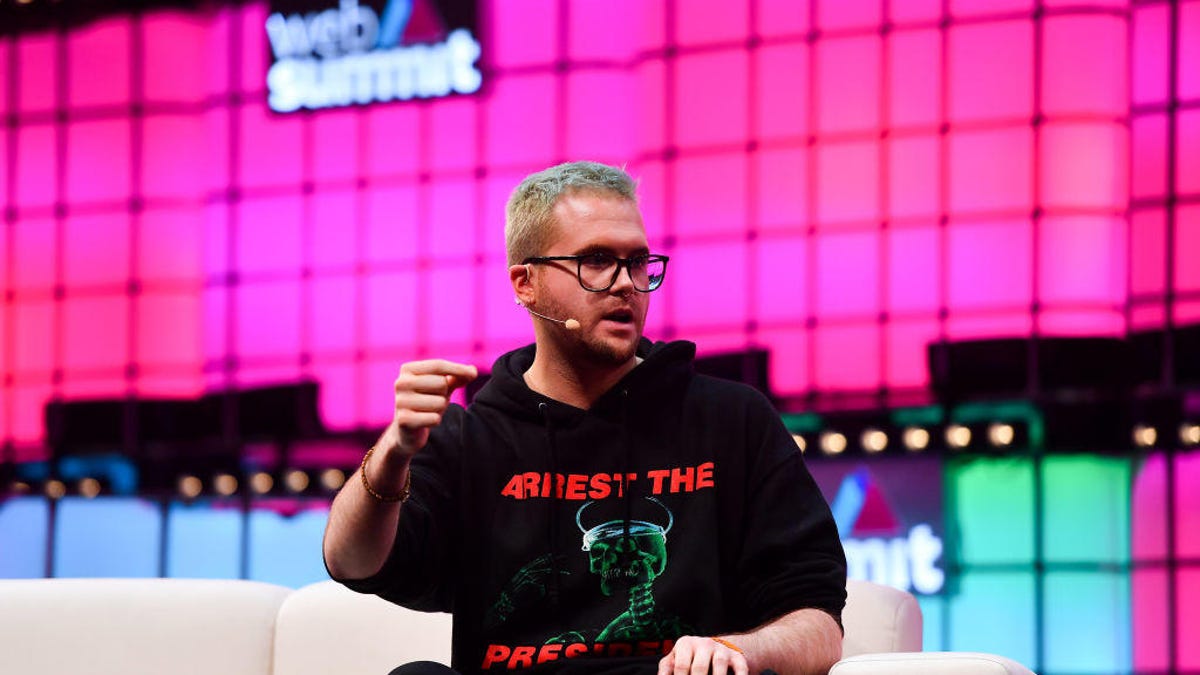Chris Wylie: Blowing the whistle on Cambridge Analytica? Worth it
The man who lifted the lid on 2018's biggest tech scandal has no regrets about coming forward.

Christopher Wylie speaking on stage at Web Summit in Lisbon, Portugal.
When it came to light that consultants working for Donald Trump's presidential campaign exploited the personal Facebook data of millions, one man was to thank for bringing the revelations into the public realm: former Cambridge Analytica employee-turned-whistleblower Chris Wylie.
Just over six months on from lifting the lid on a scandal that's plagued Facebook throughout 2018 and rocked the tech world, Wylie says he has no regrets about coming forward and speaking out.
It was all worth it, he said on stage at Web Summit in Lisbon, Portugal, on Tuesday, because it started a conversation.
"Change is slow. Change doesn't happen overnight," said Wylie."I sat there in one of the largest abuses of AI ethics I think that we've seen yet, and I felt a duty to speak about it."
Wylie left Cambridge Analytica when he realized the company's activities were "fracturing American society," he said, and he was sued by the company and forced to sign an NDA. Sitting on stage wearing a hoodie emblazoned with the words "arrest the president," he described how he tried to warn Democrats working under then-President Barack Obama and preparing to transition to what they thought would be a Hillary Clinton administration about the way in which Cambridge Analytica was empowering the Trump campaign. But they didn't listen.
"I saw Steve Bannon, my old boss, walking into the White House with Donald Trump," said Wylie. "And thinking back to things he said in private, [I thought], This is fucked up.
"Steve was trying to create his own personal NSA," Wylie continued, referring to the US National Security Agency, which was at the center of a surveillance scandal in 2013 after Edward Snowden leaked documents about its practices.
At least now Wylie can talk with legislators around the world about what he observed. "I think that is progress," he said.
The wheels may be turning on the creation of new legislation and regulations, but it's not clear to Wylie whether anyone has paid a price for the scandal.
"So far there haven't been any consequences," he said.
He's concerned that as a society, we haven't come to appreciate what it is we're doing when we hand our data to big companies, the founders of which we treat as though they're "almost divine." Meanwhile, he said, people in Myanmar are dying because of disinformation.
"This is a story of colonialism," Wylie said. "Facebook is our generation's East India Company."
Facebook, which took a major hit to its reputation when the Cambridge Analytica scandal broke and has implemented a raft of internal changes, might disagree with Wylie's analysis (the company didn't immediately respond to a request for comment). But it's managed to avoid big fines and criminal proceedings.
Wylie credited the Information Commissioner in the UK as being the only regulator to penalize Facebook, when it hit the company with the biggest fine it's allowed to issue ($645,000) last month. But otherwise, he's been unimpressed by the responses of governments, regulators and police.
"My journey as a whistleblower has also been a journey in understanding institutional failure," he said. "Our governments are not equipped to handle this." The government committees he has provided evidence to in the US are the specific objects of his antipathy. "The things that I get asked, particularly in private, are concerning," Wylie said. "I've been asked: 'Where in America do we store the internet?'"
One solution he'd like to see is more oversight and regulation to make users feel safe using the internet, the same way they do when going to a doctor or getting on an aeroplane.
"If we can regulate nuclear power, why can't we regulate some code?" Wylie said.
Wylie also called for the data scientists and engineers to have a professional code of conduct that forces them to consider the ethical implications of everything they're doing.
"We are touching people's lives so intimately that we should have rules to make sure we at least give due consideration to the impact of the things that we build," Wylie said. "Otherwise we are playing with fire, and people get burned."
Cambridge Analytica: Everything you need to know about Facebook's data mining scandal.
The Honeymoon Is Over: Everything you need to know about why tech is under Washington's microscope.

